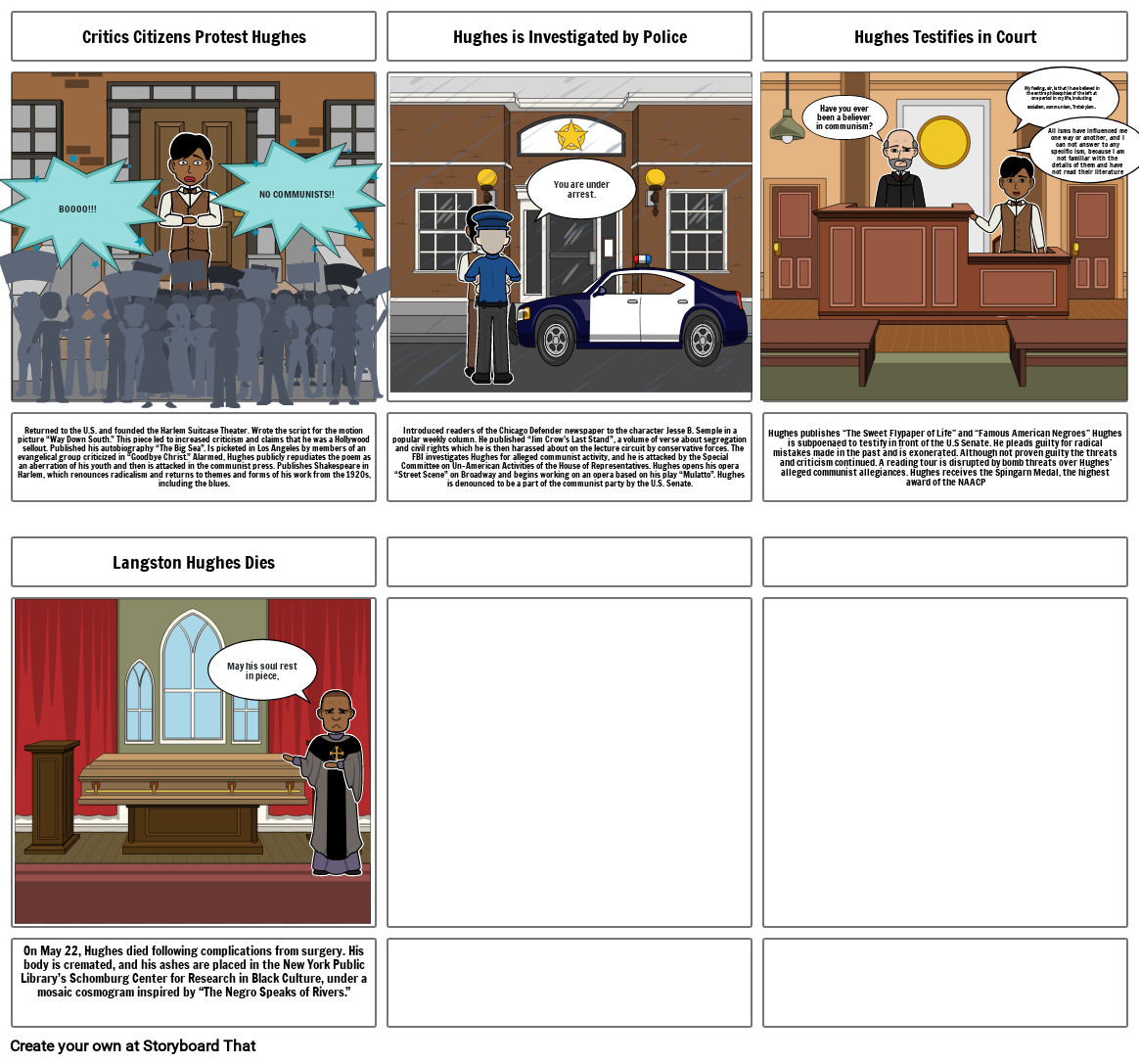Langston Hughes pt.2

Storyboard Text
- BOOOO!!!
- Critics Citizens Protest Hughes
- NO COMMUNISTS!!
- Hughes is Investigated by Police
- You are under arrest.
- Hughes Testifies in Court
- Have you ever been a believer in communism?
- My feeling, sir, is that I have believed in the entire philosophies of the left at one period in my life, including socialism, communism, Trotskyism.
- All isms have influenced me one way or another, and I can not answer to any specific ism, because I am not familiar with the details of them and have not read their literature
- Returned to the U.S. and founded the Harlem Suitcase Theater. Wrote the script for the motion picture “Way Down South.” This piece led to increased criticism and claims that he was a Hollywood sellout. Published his autobiography “The Big Sea”. Is picketed in Los Angeles by members of an evangelical group criticized in “Goodbye Christ.” Alarmed, Hughes publicly repudiates the poem as an aberration of his youth and then is attacked in the communist press. Publishes Shakespeare in Harlem, which renounces radicalism and returns to themes and forms of his work from the 1920s, including the blues.
- Langston Hughes Dies
- May his soul rest in piece,
- Introduced readers of the Chicago Defender newspaper to the character Jesse B. Semple in a popular weekly column. He published “Jim Crow’s Last Stand”, a volume of verse about segregation and civil rights which he is then harassed about on the lecture circuit by conservative forces. The FBI investigates Hughes for alleged communist activity, and he is attacked by the Special Committee on Un-American Activities of the House of Representatives. Hughes opens his opera “Street Scene” on Broadway and begins working on an opera based on his play “Mulatto”. Hughes is denounced to be a part of the communist party by the U.S. Senate.
- Hughes publishes “The Sweet Flypaper of Life” and “Famous American Negroes” Hughes is subpoenaed to testify in front of the U.S Senate. He pleads guilty for radical mistakes made in the past and is exonerated. Although not proven guilty the threats and criticism continued. A reading tour is disrupted by bomb threats over Hughes’ alleged communist allegiances. Hughes receives the Spingarn Medal, the highest award of the NAACP
- On May 22, Hughes died following complications from surgery. His body is cremated, and his ashes are placed in the New York Public Library’s Schomburg Center for Research in Black Culture, under a mosaic cosmogram inspired by “The Negro Speaks of Rivers.”
Over 30 Million Storyboards Created
No Downloads, No Credit Card, and No Login Needed to Try!
